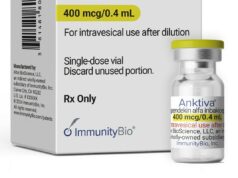
MorphoSys, a biotech that has spent much of its three-decade history developing drugs that ended up at other companies via partnerships or licensing deals, is now building up its own pipeline through a $1.7 billion acquisition of Constellation Pharmaceuticals.
Constellation will bring to MorphoSys clinical-stage drugs and expertise in epigenetics, the study of turning genes on or off without altering the genetic code. That research has yielded a Phase 3 drug candidate for a rare blood cancer, as well as another compound in mid-stage testing with the potential to bring epigenetics to the treatment of solid tumors.
To add those drugs to its pipeline, Munich, Germany-based MorphoSys agreed to pay $34 for each share of Constellation, which is a 68% premium to the company’s closing stock price on Tuesday. The deal values Cambridge, Massachusetts-based Constellation at $1.7 billion. Following the announcement of the transaction Wednesday morning, shares of Constellation opened at $33.71 apiece, up 66.5% from Tuesday’s closing price. MorphoSys’s stock opened at $18.82, down 14.7% from Tuesday’s close.
The most advanced Constellation drug, pelabresib, is currently in Phase 3 testing as a treatment for myelofibrosis, a bone marrow cancer that affects the production of red blood cells. The small molecule drug is designed to block BET, which are proteins that cancer cells can use to promote their growth.
The second clinical-stage Constellation program, CPI-0209, is a small molecule that blocks an enzyme called EZH2 for potential applications in both blood cancers and solid tumors. Other companies have pursued drugs that target EZH2. For example, Tazverik, a small molecule from Cambridge-based Elizma has FDA approvals for epithelioid carcinoma sarcoma and follicular lymphoma. But in its 2020 annual report, Constellation describes CPI-0209 as a second generation EZH2 inhibitor designed to offer comprehensive coverage of the enzyme, “to potentially enable deeper, more rapid, and more durable tumor regression, as well as to demonstrate improved metabolic properties compared with first-generation EZH2 inhibitors.”
CPI-0209 is currently in Phase 2 testing in patients with urothelial carcinoma, ovarian clear cell carcinoma, endometrial carcinoma, and lymphoma. Speaking on a conference call Wednesday, MorphoSys executives said both CPI-209 and pelabresib could be the first in a new class of epigenetic drugs, and potentially the best in this class.
“Looking at the two assets, I see a high probability of success for both molecules,” said Malte Peters, MorphoSys’s chief research & development officer. “That’s why we were all excited to add these two assets to our portfolio.”
Constellation’s small molecules will join a MorphoSys pipeline whose most advanced assets are two antibodies. Tafasitamab, which targets the cancer protein CD19, is already approved as a treatment for relapsed or refractory diffuse large B-cell lymphoma (DLBCL) and is marketed as Monjuvi under a partnership with Incyte. That drug is in late-stage clinical development that could expand the drug’s use to first-line treatment of DLBCL as well as to follicular lymphoma and marginal zone lymphoma. The second MorphoSys antibody, felzartamab, is in Phase 3 testing under a partnership with I-Mab as a potential treatment for multiple myeloma. MophoSys has also advanced the drug to Phase 2 tests in autoimmune diseases.
Constellation will bring to MorphoSys additional compounds in preclinical development. But MorphoSys Chief Financial Officer Sung Lee said that when the deal closes, the focus will be on the four clinical-stage assets from MorphoSys and Constellation.
In a separate but related transaction, MorphoSys unveiled more than $2 billion in funding from Royalty Pharma, a company that buys the rights to drug royalties. MorphoSys is handing over to Royalty Pharma all of the royalties it is owed for guselkumab, a plaque psoriasis drug that Johnson & Johnson markets as Tremfya. Royalty Pharma also gets 60% of future royalties from ganterumab, a drug that MorphoSys partner Roche has advanced to late-stage testing in Alzheimer’s disease; and 80% of the royalties for otilimab, a drug in Phase 3 testing for rheumatoid arthritis under a partnership with GlaxoSmithKline. The two Constellation drugs also figured into the Royalty Pharma agreement. Royalty Pharma will receive 3% of the future sales of pelabresib and CPI-0209.
That agreement calls for Royalty Pharma to pay MorphoSys $1.4 billion up front, which the biotech will use to finance the Constellation acquisition and develop the combined drug pipeline. Royalty is also providing up to $350 million in development funding bonds, which the biotech may draw from over a one-year period. There’s more. Royalty Pharma is making a $100 million equity investment in MorphoSys, and the biotech could earn up to an additional $150 million pegged to regulatory and commercial milestones for otilimab, ganterumab, and pelabresib.
The Constellation acquisition, which has been approved by the management and supervisory boards of MorphoSys and by Constellation’s board of directors, is expected to close in the third quarter of this year. When it does, MorphoSys will remain headquartered in Munich, though it will also maintain a commercial and R&D operations in the Boston area.
Photo by Flickr user Ed Uthman via a Creative Commons license








